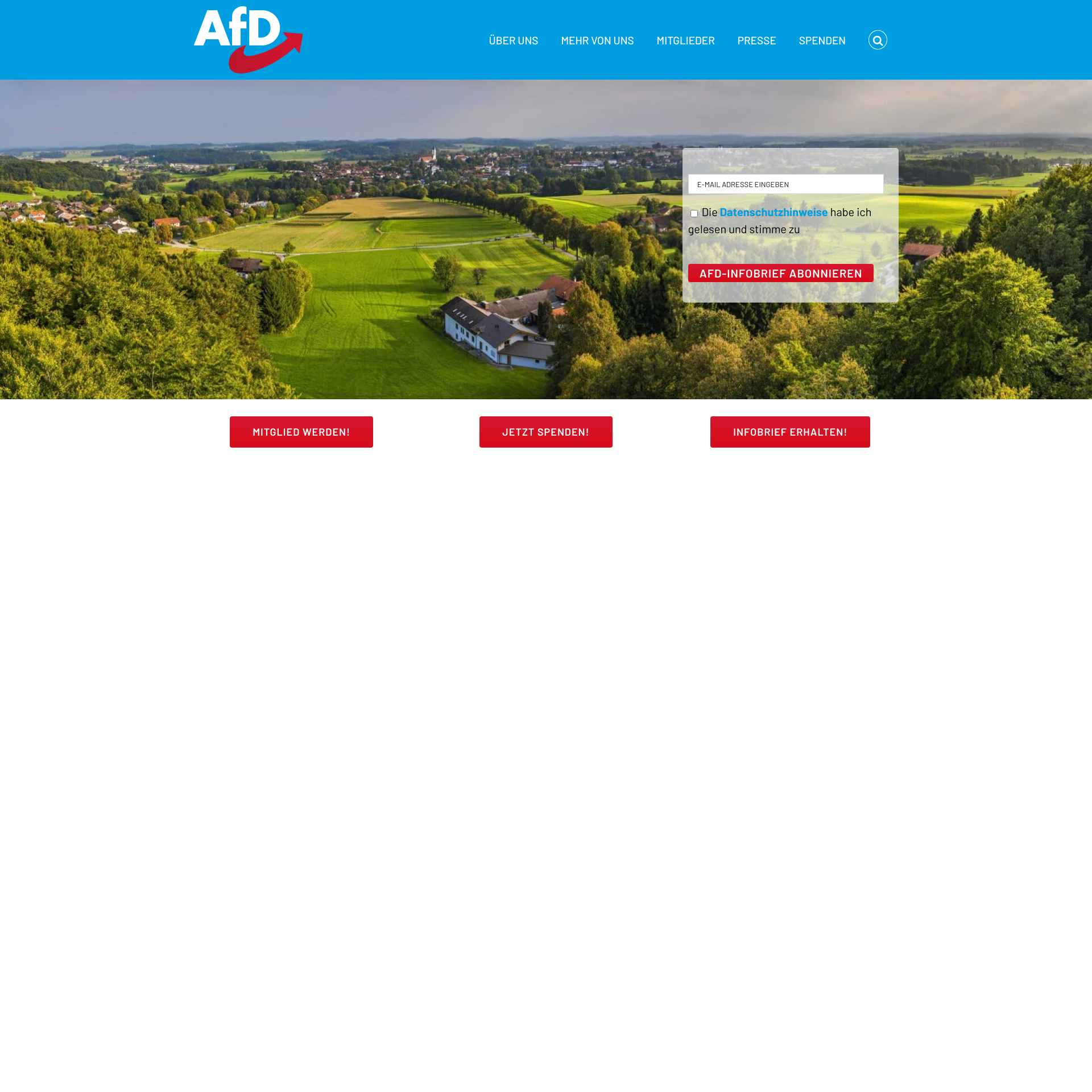The Alternative für Deutschland (AfD) party, known for its right-wing and populist stance, has been utilizing its website, https://afd.de, to further its political agenda and engage with supporters. The website acts as a crucial platform for disseminating party information, promoting policy positions, and connecting with potential voters.
One of the significant features of the website is its comprehensive and detailed content, covering a range of topics from immigration to economics. Users can access a wealth of information about the AfD’s approach to various issues, as well as find statements made by the party’s representatives in governmental institutions. Additionally, the website offers supporters the opportunity to engage through interactive features such as forums and comment sections.
However, the AfD’s website has been the subject of criticism due to its controversial, polarizing nature. Critics argue that the website and its content often contribute to the spread of misinformation and the promotion of divisive ideologies. Furthermore, some have voiced concerns regarding the moderation practices applied to user-generated content on the platform, claiming that hate speech and extremist views are not adequately addressed.
In the online political landscape of Germany, the AfD’s website faces competition from other parties and platforms. The Christian Democratic Union (CDU) and the Social Democratic Party (SPD) website, for example, offer similar features like policy statements, press releases, and platforms for public dialogue. However, these websites emphasize a more centrist approach, seeking to appeal to a broader base by promoting moderate positions and focusing on issues such as social welfare, labor rights, and climate change.
Moreover, alternative sources of political news and discourse include independent media outlets and online forums. These platforms often provide critical analysis and divergent perspectives, intending to counterbalance the narratives presented by parties like the AfD. The variety of competitors in the digital political sphere reflects the pluralistic nature of German democracy, illustrating the diverse range of options available to citizens seeking political information.
As the AfD continues to use its website as a powerful tool to shape German political discourse, the platform remains a subject of scrutiny and competition from both traditional political parties and independent sources. The impact and influence of such online platforms on public opinion and the democratic process are ongoing subjects of debate.
Link to the website: afd.de



